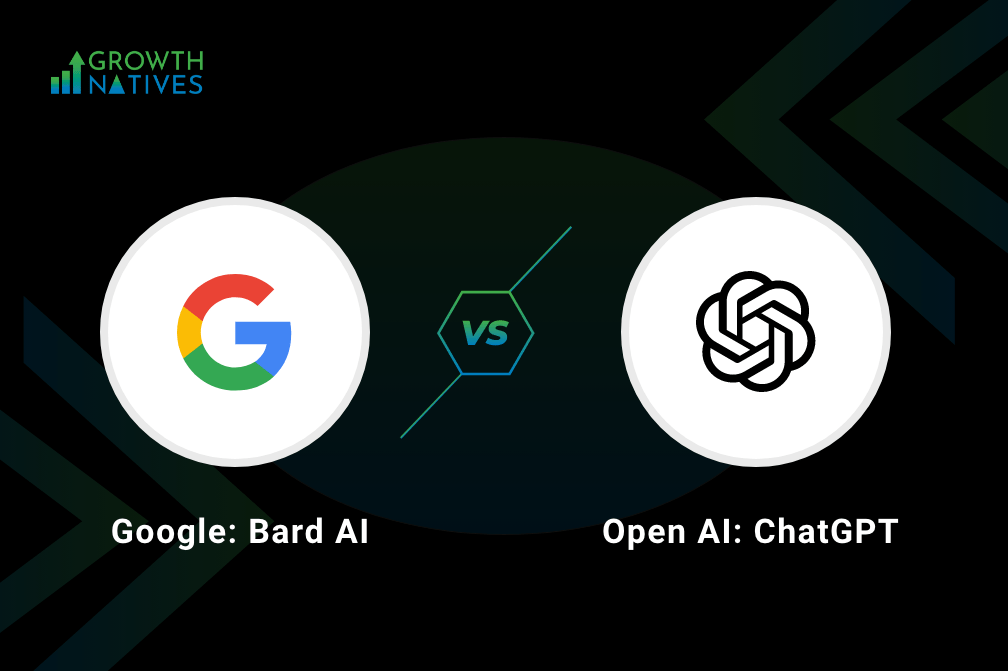Is ChatGPT the End of Google Search? – Security Concerns and More

Table of Contents
Imagine a chatbot that can generate functional codes, create images from chat instructions, write essays, and complete school homework. There has been hype around such chatbots for years, but none have truly lived up to the expectations. However, OpenAI's recently launched ChatGPT is different as it does live up to this hype, and more.
For years, we have lived with the fear of artificial intelligence (AI) taking over the world. Perhaps we now have the closest glance at it. ChatGPT clocked more than 1 million downloads within the first five days of its launch. OpenAI has already offered us a glimpse into the future with Dall-E 2, an AI-powered image generator. This new chatbot is a further extension of the company's tryst with Artificial Intelligence.
What's more, tech experts are going as far as seeing it as the Google Search killer! Now, when someone mentions a technology that threatens the search engine behemoth, the world notices it.
If you follow the buzz from Silicon Valley, you would surely have heard about the frenzy surrounding this chatbot. It is the most talked about topic in the tech industry today and has pushed Elon Musk's Twitter saga to second place! It does have a Musk connection which should come as no surprise.
What Is ChatGPT?
ChatGPT, or Chat Generative Pre-Trained Transformer 3, is a language model chatbot. Unlike most of the other chatbots we have seen in the past, ChatGPT features an extensive ability to interact in a conversational language like humans. Within a month of its release, it has created big waves in the chatbot industry with a fantastic feature that answers like a real human being, as real as you have seen it from any human agent.
The man behind it is CEO Sam Altman, and he is aiming to assist human creativity with his chatbot. It differs from other chatbots as it can answer follow-up questions, reject inappropriate requests, correct incorrect premises, and most importantly, admit its own mistakes, as OpenAI claims. We have seen similar claims about AI from Facebook and Microsoft in the past, but none of them made the world notice them as much as these tech giants would have liked.
The company has Elon Musk as one of its founders. The Tesla and now the Twitter boss isn't part of the OpenAI board anymore and doesn't make day-to-day decisions. The possibilities with ChatGPT seem to have caught him by surprise, and he surprisingly blocked the chatbot's access to Twitter's database. While the chatbot has shortcomings, its threat to established players in the tech industry is real. Business leaders have admitted to using it to prepare their speeches at TED talks.
Is ChatGPT the Google Search Killer?
Let's start with a spoiler alert - it may be far-fetched for a chatbot less than a month old to be seen as the potential killer for Google Search and its $2 trillion parent, Alphabet Inc. But there are reasons some tech experts have got their heads worked up. This far-fetched idea of ChatGPT causing nightmares at Googleplex isn't without its logic. For that, we must understand the unwritten contract that Google has with its billions of users – it provides the best answers to the questions (queries) and does it so quickly.
ChatGPT can potentially hurt this contract between the search engine giant and its users by offering better answers to queries and even generating new ones when there aren't enough answers in cyberspace. It can take the ever-increasing hunger for information to a whole new level. So far, Google Search and other search engines have acted as an intermediary between the user and the content.
Google Search doesn't generate content and provides answers by crawling billions of pages, indexing content, and ranking them based on their relevance to users. Between searching and accessing the content, there is a list of links to click for every user. ChatGPT can potentially do away with these links and search results, and instead, offer a single answer based on its synthesis of information. It offers an immediate response to queries that does away with the need to scan dozens of websites. Its supporters term this as "frictionless" access to information and hence, see it as the potential successor to Google Search.
There have been news reports that Alphabet's management has declared Code Red on this new chatbot. The tech giant has decided to switch gears to developing and launching new AI products, taking this threat seriously. More than the search, Google may be worried about its Ads program as ChatGPT could hurt billions in revenue that the search engine earns from ad links placed alongside organic search results. ChatGPT's single answer to a search query can make these ads redundant.
However, ChatGPT is far from being perfect with its answers, as several people have pointed out. The results are at times erroneous, and experts say it cannot distinguish between a verified fact and misinformation. Hence, it is early days to see it as a threat to Google Search but the chatbot developers at OpenAI will work toward making it perfect, and Google isn't likely to go down without a fight to guard its territory.
Other Security Concerns
It isn't Google alone that has its fears with ChatGPT. Others are sounding security concerns that this and other AI-powered technology pose to human society. While many of these may be superficial, others are real and must be debated.
Phishing Emails & Messages
Phishing emails aren't complex to detect when people have keen eyes. Poor spelling, typos, and bad grammar have been their telling traits. The reasons behind them are many, from the substandard education of scam stars to deliberate attempts to escape spam filters. With ChatGPT, thousands of personalized and genuine-looking phishing emails can be composed in seconds, posing severe financial risks to millions of Internet users.
Malware
Creating malware hasn't been easy so far. Someone had to be an evil genius to create malware that could breach firewalls and security protocols. A tool like n ChatGPT that promises to write codes based on basic text instructions can be used to create malware and unleash them at an unprecedented scale on the world. Cybercriminals can use it to build the most lethal cyber weapons we know, and security experts would have an arduous task in firefighting a challenge at this scale.
Disinformation & Biases
The world is fighting the menace of fake news and disinformation. The problem has reached an acute level raising questions about democratic processes, with some believing it undermines free and fair elections. If anything, a chatbot that can generate content can add to this menace. It can be used to create fake news and impersonate real individuals. AI-generated content can harp on society's biases and be trained to perpetuate these harmful stereotypes creating friction between people and communities.
Search Results
Search Engine Optimization has been a game of creativity. Though optimizers have tried gaming the algorithms, search engines have quickly responded and improved the users' search experience. A Google Search on any query returns the most helpful information. It is impossible to get ranked for manipulative information and stay on top of search results. However, a chatbot like ChatGPT can generate tons of content in seconds to manipulate organic search results or do away with them entirely with a single result that is misleading.
Job Losses
Technology leading to job losses has been a debate since the Industrial Revolution. But the human race has always reskilled and mastered the technology. However, ChatGPT's capabilities with AI aren't one for humans to fight. It threatens millions of jobs where a few text instructions can deliver output faster and cheaper than any artist, web designer, writer, or software developer could ever match. It can lead to an unprecedented crisis and pose a significant societal threat.
Final Thoughts
Artificial intelligence and ethical concerns are inseparable. They go hand-in-hand, and the concerns with ChatGPT aren't new. OpenAI's ChatGPT has pushed the threshold with chatbots and AI-powered technologies further, and we shall see the tech industry giants follow suit. Whether it will kill Google Search or turn millions of people worldwide jobless shall be news for the future. But such a technology placed in the hands of ordinary people can make them create wonders or work on nefarious projects. What can't be taken away from OpenAI and ChatGPT is their big step toward demonstrating the possibilities of AI.
There are no two arguments for the fact that AI is the future of technology, marketing, and human society. As a business, you must embrace AI-powered technology to deliver better products and services to your customers. It can take your marketing campaign to the next level allowing granular targeting and lower customer acquisition costs. At Growth Natives, we have embraced AI-powered tools to streamline marketing and branding. If you need to know the possibilities of AI-powered marketing, set up a consultation with our team by emailing us at info@growthnatives.com.
Author Box
Sakshi Arora
Sakshi Arora is a seasoned content writer and editor with extensive experience across various industries including B2C, B2B, travel, e-commerce, and IT. In her free time, she enjoys expressing her creative side through painting and writing poetry. She also finds solace in nature and has a deep spiritual connection. Music brings her immense joy.




